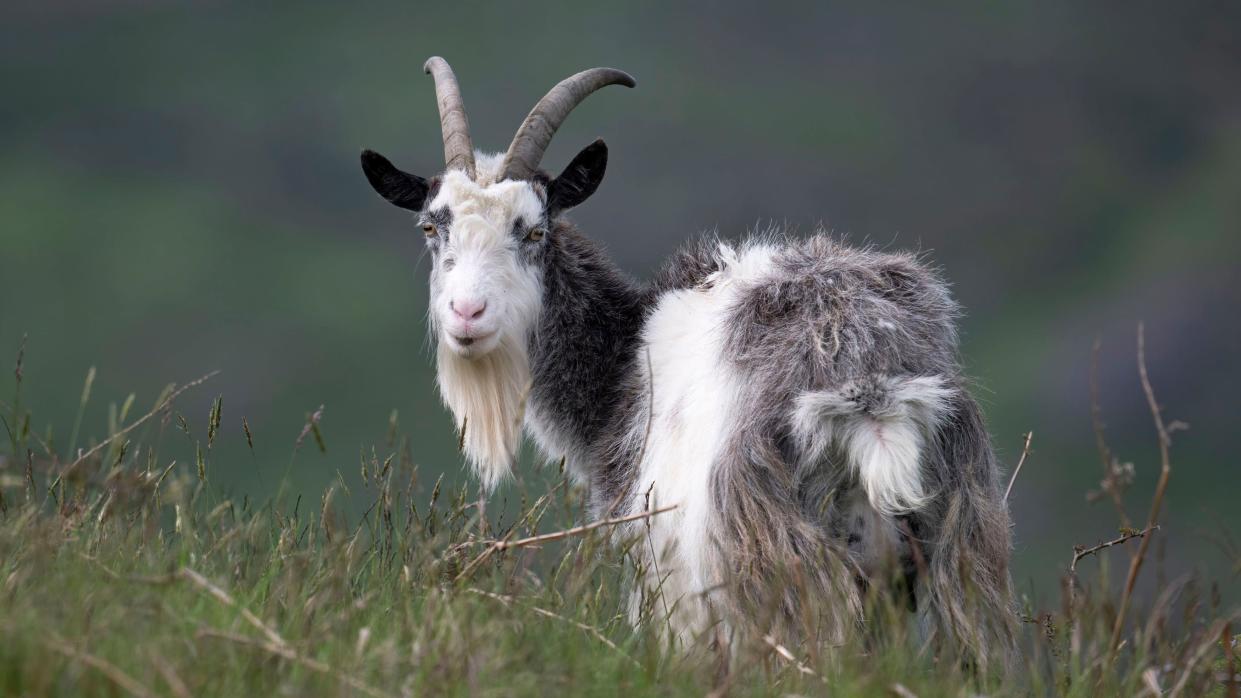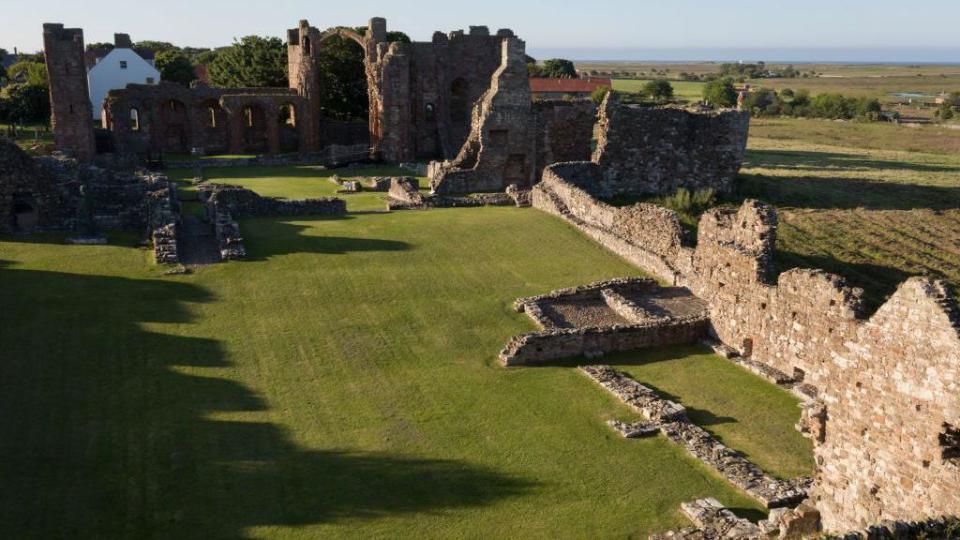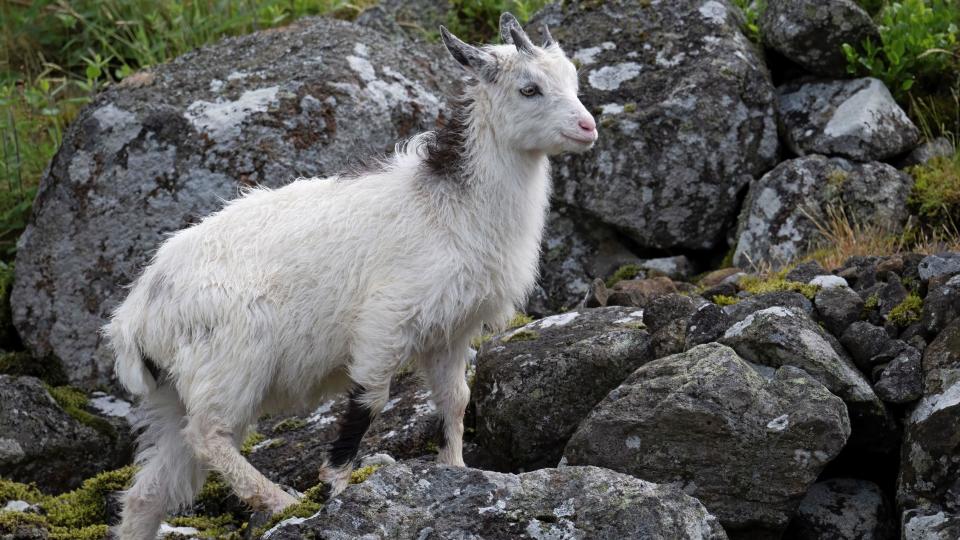Primitive wild goats put on rare breed list

Goats living in a wild herd in the UK have been added to a watchlist of rare breeds.
The Cheviot goat population - estimated at just 450 - centres on a group in the Cheviot Hills in Northumberland.
It is considered an "authentic remnant" of Britain's original primitive goats and has now been added to the Rare Breeds Survival Trust (RBST) watchlist to support its conservation.
Of the estimated 450 Cheviot goats left - including those held by private breeders and for grazing schemes - only 86 females produced offspring in 2023, the RBST said.
According to legend, the goats of the Cheviot Hills originated when the monks of Lindisfarne abandoned their monastery in 875AD.
As they herded their livestock along the way, the goats were too feisty to control and were left to roam in the area, the charity said.

Found in College Valley, Newton Tors and Yeavering Bell, the College Valley Cheviots are left as a completely wild herd with minimal intervention.
Christopher Price, chief executive of the RBST, said: "They are a crucial link to the UK's original primitive goats that were so relied upon by generation after generation, from the Bronze and Iron Ages, through medieval times and up to the smallholders of the 19th and early 20th centuries."
He added that without the isolated feral College Valley Cheviot herd, these genetics would have been lost "irretrievably".

The Cheviot is considered excellent for conservation grazing - the practice of using livestock to graze land in ways that specifically support wildlife and habitats.
Shirley Goodyer, from the British Primitive Goat Research Group, said: "We have been striving for a long time to maintain the genetic integrity of this historically well-documented herd which displays all the phenotypic characteristics expected of our ancient British Primitive goat."
Follow BBC North East on X (formerly Twitter), Facebook and Instagram. Send your story ideas to northeastandcumbria@bbc.co.uk.


